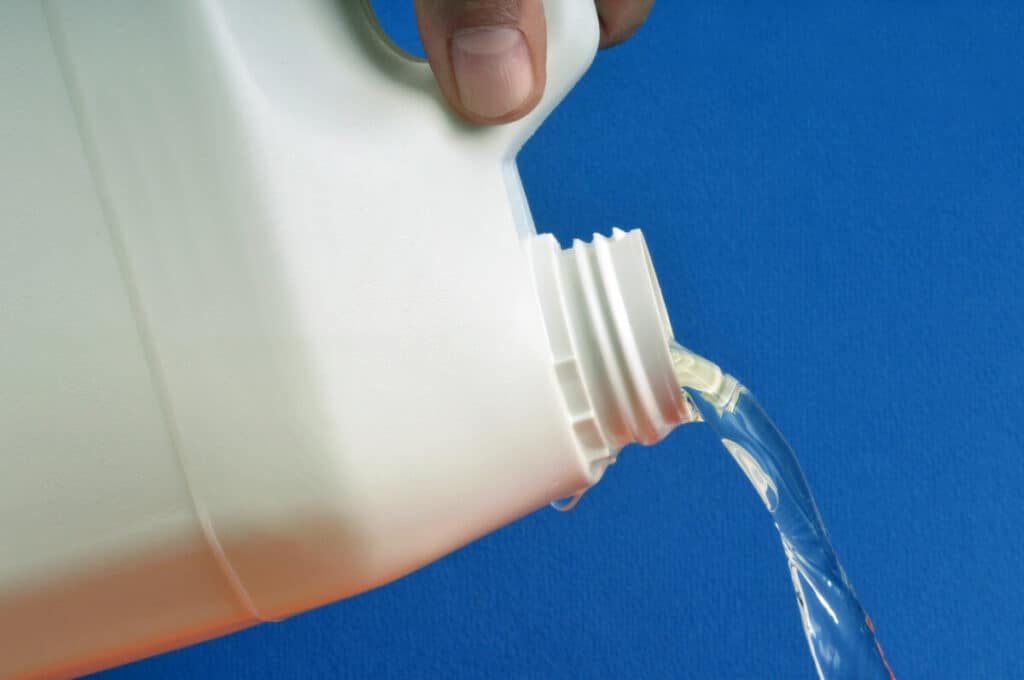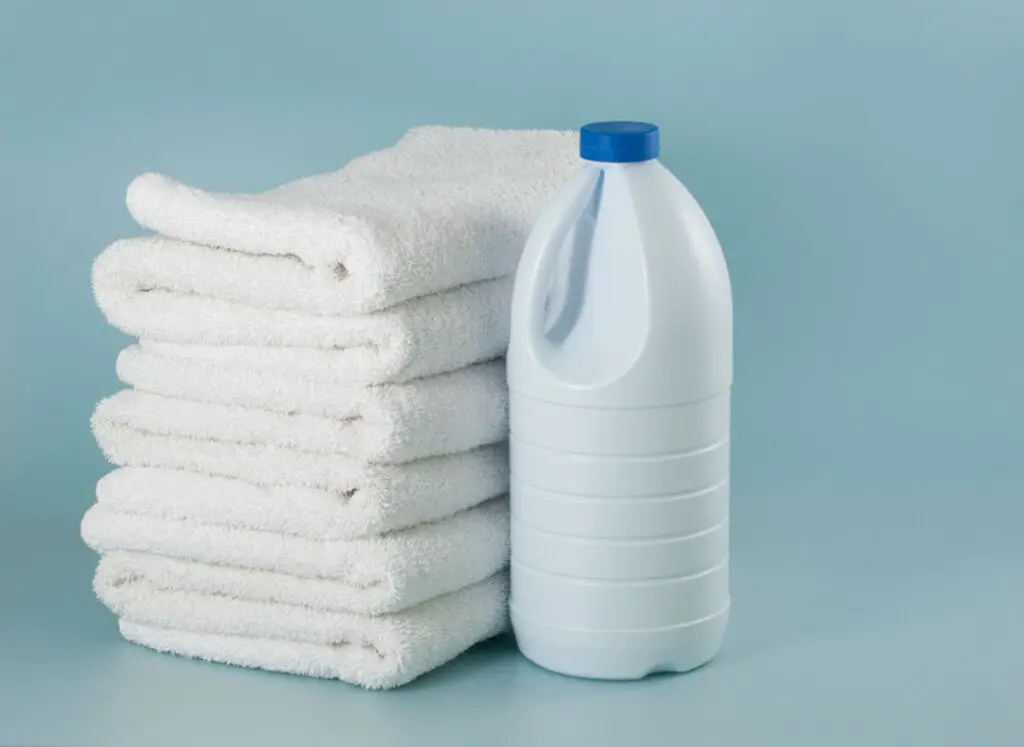
Bleach is a really scary chemical to work with since like most bases it has a tendency to destroy whatever it comes into contact with. This means that it’s super important to know what to do with expired bleach.
Expired bleach is safe to pour down a drain such as a sink or a toilet since by the time the bleach has expired the chemical that gives it its potency has broken down naturally. This is even safe to do over a septic tank. Expired bleach can be easily recognized by its lack of a bleach smell.
But what if the bleach that you have isn’t quite expired? And how long will bleach last on the shelf anyway? Here, we will answer your questions the best we can!
Getting Rid Of Old Bleach
Obviously, bleach that is completely expired is safe to do as you will. The Sodium Hypochlorite in bleach breaks down over the course of about a year, which means that as time passes from the manufacturing of a bottle of bleach that bleach is constantly degrading until it has stabilized.
After about a year, bleach is probably weak enough that it shouldn’t be used for cleaning purposes anymore. When this takes place, the old bleach is pretty easy to get rid of, since the thing that makes it dangerous to dump is the sodium hypochlorite. Because of this, the old bleach can be safely disposed of down the sink.
If the bleach you’re getting rid of still has a smell, that means some sodium hypochlorite is still present. If this is the case, you can still dispose of it down the drain. However, you’ll need to make sure that it’s diluted with water to prevent it from damaging anything by accident.
If you’re dumping it down a sink or bathtub, you can do this by running the faucet as you pout the sink down the drain. If you’re dumping it into a toilet, the water that’s already in the bowl should be sufficient.
The Shelf Life Of Bleach
It takes about six months for market-grade bleach to start degrading in optimal circumstances, and a further six months for it to break down to the point where it is unusable. In order to figure out the expiration date of a bottle of bleach, take a look at the series of numbers and letters near the top of the bottle.
Clorox gives this example for explanatory purposes: A81421321CA3. The first two symbols are referring to its factory of origin, but they are followed by the numbers 14 and 213.
The 14 is referring to the year 2014, and the 213 is referring to the day of the year. Converting to calendar days, this gives us the date August 1st, 2014. The expiration date for this bottle should be sometime in August of 2015.
If you have questions as to whether a certain bottle of bleach is still good, just smell it. That bleach smell is caused by Sodium Hypochlorite, so if it’s still present you may still be able to get some use out of it. If it isn’t present or is very faint, it’s time to dump it.
Can Bleach Be Safely Neutralized
The many dangerous chemical reactions bleach has with various liquids might be one of the best-known facts about it. There are a lot of ways to accidentally turn a mostly safe bottle of bleach into a war crime. Plenty of common household cleaning solutions are too dangerous to even be used on the same surface as bleach. Fortunately, there are a few techniques that, if you really wanted to, you could use to totally neutralize a bottle of bleach before getting rid of it.
Commonly used in the dying process, metabisulfite or Anti-Chlor will pretty much instantly neutralize any bleach you put it in and can be purchased in convenient tablet form. A 3% Hydrogen Peroxide solution will do the same job, although you’ll have to mix that solution up yourself.
Just a quick warning: If using hydrogen peroxide, less is more. Mixing bleach and hydrogen peroxide produce pure Oxygen gas, and at high concentrations can produce a large amount of it very quickly. This can cause an explosion powerful enough to kill you instantly. Fortunately, if your hydrogen peroxide solution is diluted down to 3% and you use it sparingly, the resulting reaction is unlikely to be dangerous.
Unfortunately, bleach companies don’t seem interested in telling people the exact amount of any given chemical it will take to neutralize one cup of bleach. Instead, as you add the neutralizer, watch the resulting reaction very carefully. When the reaction ends, it’s safe to add a little bit more of the neutralizing solution. When adding more neutralizer doesn’t cause a reaction, the bleach has been neutralized. This reaction will break bleach down into the water, oxygen, and free chlorine atoms. This solution probably shouldn’t be ingested, but is safe to pour down the sink. If you have a lot of bleach that you need to get rid of quickly, neutralizing it might be a good option.

Getting Rid Of Usable Bleach
The best way to get rid of bleach that can still be used is to use it up. Having a little cleaning spree should be able to at least put a dent in your supply of degrading bleach. If you have close friends who need to clean their homes, offering your leftover bleach to them would be a weird thing to do, but some people might appreciate it.
You might also be able to donate it to a local church or nonprofit. Small organizations with small budgets often rely on donated cleaning supplies to keep spotless.
If you really just want the bleach gone, you can neutralize it and pour it down the sink.
Getting Rid Of Bleach Bottles
Most bleach bottles can be recycled. To recycle a bleach bottle, you’ll need to rinse it out thoroughly first. Once the bottle is clean of bleach, you can usually throw it in the recycling with everything else.
In some places where recycling infrastructure isn’t as robust, you might have to throw the bleach in the trash. You can discover if this is the case by checking with your local waste management system.
Related Topics:
If you like the article above, here are some other similar articles you should check out!
What Should I Do with Expired Body Lotion
